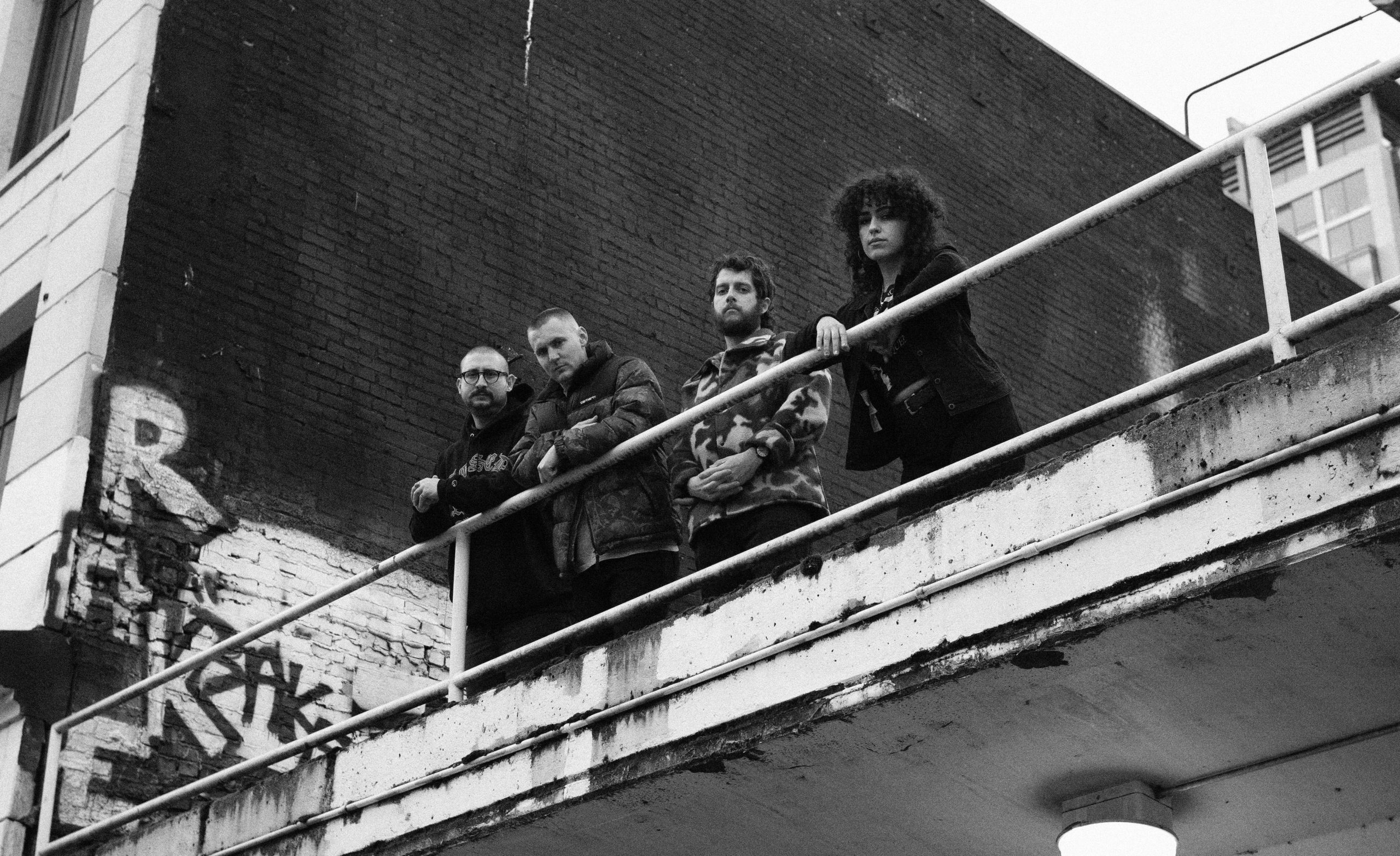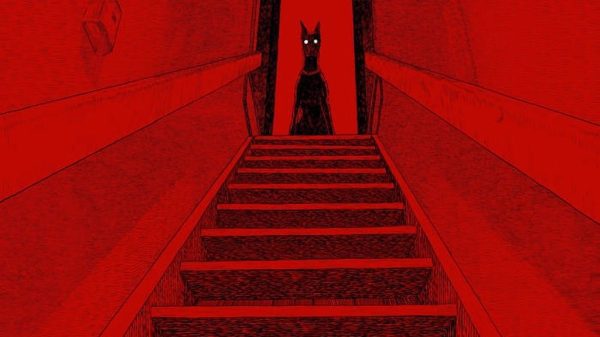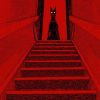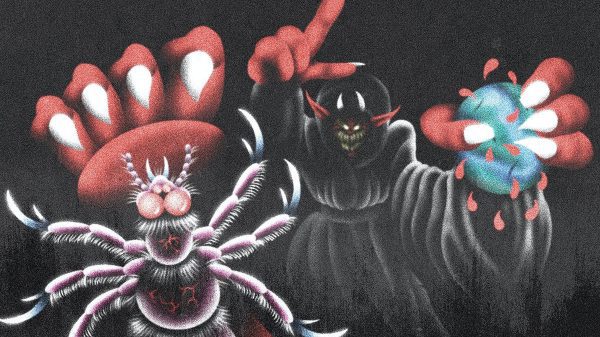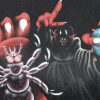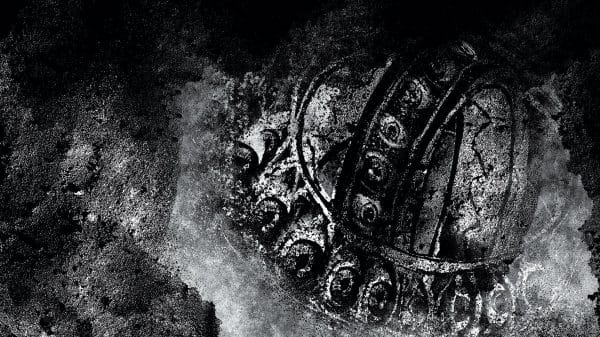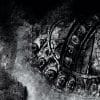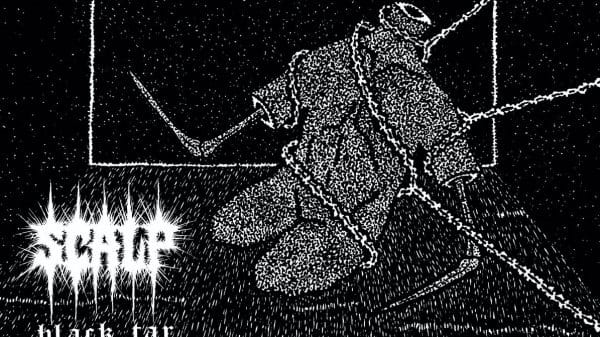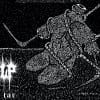In less than four years, Regional Justice Center has become one of the most respected outfits in hardcore, fastcore, and powerviolence. Created and led by the indefatigable Ian Shelton, the band combines the raw aggression of the genres’ forebears with airtight musicianship and brilliant innovation. RJC‘s rapid ascent to “household name” status in the powerviolence world is due largely to their bombastic and perfectly-paced approach to hardcore, which combines the various punk sounds of California, New England, and the Pacific Northwest. What the casual listener may miss, however, is the great thoughtfulness that Shelton dedicates to his songwriting.
On Regional Justice Center’s new LP, Crime and Punishment, Shelton works as an auteur, putting his experience as a filmmaker to use and telling a passionate, well-crafted story of a life of causes and effects. While the themes of trauma, growth, resentment, and regret are universal, Shelton’s lyrics are deeply personal, turning his life’s experiences and lessons into meaningful art.
While Shelton has, in essence, been touring and recording without slowing for a decade, he has been particularly productive for the last year, when playing live music became an impossibility. In 2020, he released an EP and a single with RJC, and EP with his Dischord/AmRep revival project Militarie Gun, and an EP with his gonzo DC-worship band Sex With A Terrorist, all of which are, needless to say, excellent.
For this record, Regional Justice Center comprised some of the most capable and forward-thinking musicians in punk at the moment. Between Shelton, Steph Jerkova, Che Hise-Gattone, and Alex Haller, RJC shares members with bands like Stress Relief, Punitive Damage, Drug Culture, New Gods, Video Prick, and Busted Bearings, in addition to the aforementioned Militarie Gun and S.W.A.T. Thanks to the chemistry of these exemplary artists, Crime and Punishment is simultaneously Regional Justice Center’s tightest and most volatile album yet, with paint-peeling tone and tempos changing on a dime.
While the music alone is enough to secure Crime and Punishment a spot on anyone’s year-end list, even this early in 2021, one owes it to oneself to dive deeper into the cautionary tales, the moral conundrums, the human drama that Shelton depicts in the poetry of his lyrics.
Managing to find some time amid his ceaseless writing and recording schedule, Ian Shelton sat down to talk with Cvlt Nation about Crime and Punishment, his creative process, his family, and the state of powerviolence today.
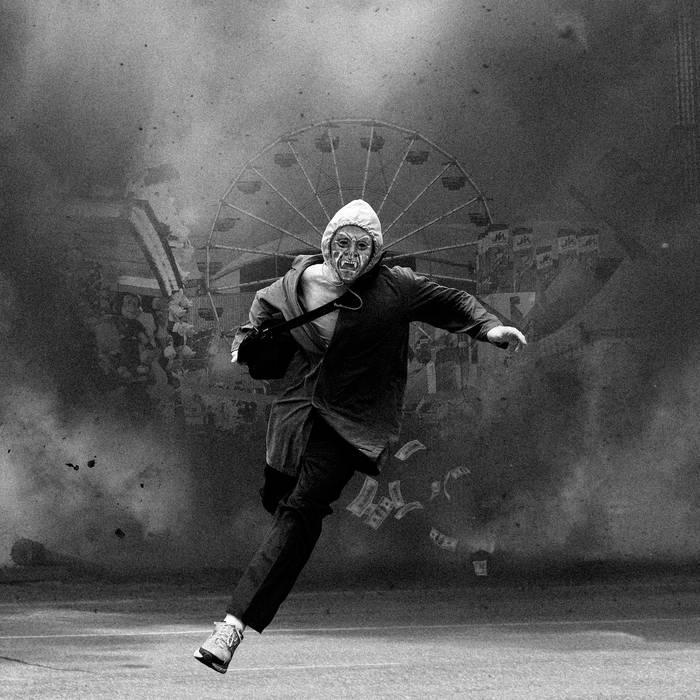
I talk to my students a lot about trying to silence their inner-editor, that voice that’s in there telling them that things are not good enough. You seem to be in a constant state of creation. Do you feel like you don’t have an inner-editor, that sense of self-doubt, or do you have it and work through it?
I think that I definitely have that inner-editor, but it doesn’t hit me until it’s getting close to release time, and then the panic starts, and I’m like, “I really don’t want to do this. Did I pick the right song?” For this, we dropped two songs, and the days leading up, I was in my head kind of panicking like, “Is this the right two? Are people going to hate these?” It never happens in the process of creation, but it’s that moment immediately before release.
When you start thinking about thinking about an audience?
I think about the audience like, “I think people are going to like this,” until suddenly I have to actually be burdened with giving it to someone, and then I’m like, “Oh no!”
Because up until then, especially when I read your lyrics, it seems like your creative process is like journaling.
I mean, I share my demos a lot with friends. I don’t have that same shame or something–I don’t know what I would describe it as—though. I don’t have that feeling when it comes to them. For the most part, they’re my only audience up until “the big go” with it.
Where does that drive to create come from? Where does the inspiration come from?
It’s kind of the process of always listening, and then you run something through your filter, and you think, “I could do something like that.” Or maybe that makes me think of something similar but different. Specifically, with powerviolence, I listen to any powerviolence record, and something sticks out: “Oh, a drum and bass part! I want to do a drum and bass part.” It could be totally dissimilar to the source, but that’s kind of the driving force
I heard that on “Inhuman Joy” this time around. It felt like a bit of a departure with Steph (Jerkova) so forward in the mix and just the drums and the bass.
Definitely. There are two songs I was specifically influenced by. I remember when Black Breath dropped that song “Unholy Virgin,” and when I’d go to shows, there would just be this moment when, out of nowhere, a drunk mom would come and drunk-mom dance in the front, and that was such a cool thing, and it was such a groove. This is 3/4 and not 12/8, I believe, but it also is like Black Flag’s “Nothing Left Inside.” I thought, I want to make a bar-rock rendition of “Nothing Left Inside,” run through a similar filter, and that’s how I ended up with that one.
In the conversation you had with Trevor (Vaughan), you both talk about drawing from non-hardcore musical influences and turning them into hardcore/powerviolence motifs. Do you have anything like that on this one?
Lyrically, The Beatles are always very present within RJC writing. The end song, “…And Punishment,” has multiple Beatles elements to it. That drum part was very much inspired by “Something” by The Beatles, and there is also a lyrical ape somewhere in there.
Do you consider your creative process to be therapy?
With RJC, I think it’s a lot of mining through the backlog of whatever is in my mind and trying to figure out how to talk about those things. Maybe there’s something I’ve wanted to say for a long time. Whereas, with something like Militarie Gun, it is like the right now. I’m not really working through processing the day-to-day because everything is so intuitive and in the moment.
What about Sex With A Terrorist? What itch does that scratch?
That was just freak guitar playing. I think that was one of those things where I just was observing a style of hardcore and being like “I think that people talk about the wrong thing or are aiming for the wrong thing with this,” like when people talk about the Void and DC sounds, that was so much because those bands didn’t view themselves as different than metal bands. I was like, “I’m not good at guitar, so if I try to write a cock-rock record, it’s going to sound like a good because I realized I’m bad at using the tools try to make a different sound than it’s going to sound like a punk record because I’m bad at guitar.” So that’s been the goal with writing S.W.A.T. stuff, that if I’m bad at using the tools, trying to make a different sound, it’s going to sound punk. I’m going to put my fingers down, and I’m kind of happy wherever they are, and I make something in that area
You’ve been working with Taylor (Young). Up until the Regional Jurstice Center, you were working with Will Killingsworth. Could you talk about how working with a different engineer affects your creative process?
The engineer is your first audience member for the most part. Will was the first person not in the Northwest to hear RJC, and it made me want to tailor things a certain way. Will is a legend in his own right, so I would be nervous about what Will would think about any new song. That’s a good part of the process. We wrote two of those songs while we were there, and because of me seeing a super tepid reaction from Will, I would change something.
The process with Taylor has been totally different. He lives near me, so I can work with him anytime. I was really getting into figuring out my demoing process for the new record, and everything was more thorough than ever. I would have his reaction before we head into the studio. Will would just engineer those earlier records, whereas Taylor produced this record. He had creative input. There are two points in the record where he wrote a part. It’s a completely different process because you have to figure out, is someone engineering, or are they engineering/producing? How much do you allow them into the creative process?
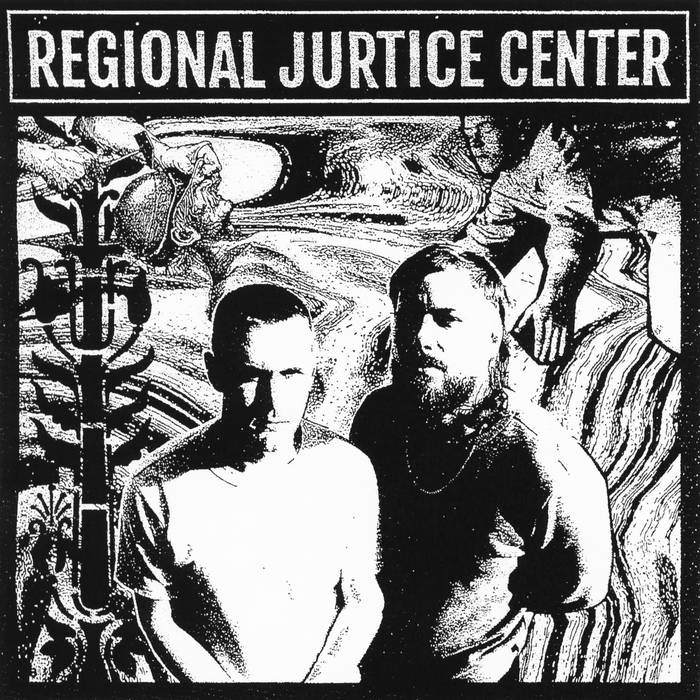
Will is in Amherst, and Massachussets is such a hub for hardcore and powerviolence. I feel like RJC has this California/Boston powerviolence sound, with Crossed Out and No Comment, but also Rival Mob and Siege.
They’re all huge influences. On that first record, I was using the same snare drum as DFJ, and he’s been an influence for all of my years in hardcore, so to be in a similar realm is interesting.
Having only been around since 2017, you’ve created a major following in a short amount of time. Does that recognition free you up from that inner editor, or does it create more of that?
That’s tough to say. After KKK Tattoo, I was thinking that people would turn on us, in general. I grew up with powerviolence, and that pretentiousness–“fake pv”–so I definitely had it in my mind. I was thinking from the first record on that, eventually, people who are too DIY or too cool will turn their backs, because that’s what they do with every band, and fuck them. I know that I’m writing better songs than I ever have. If their perception of it is that we’ve changed, then I guess they don’t like better music, so fuck them. I think about it when the panic comes when the singles drop, but for the most part it is the process of being like, eventually people are going to turn on us, eventually we’re going to be past our prime. It’s just the cycle of every band.
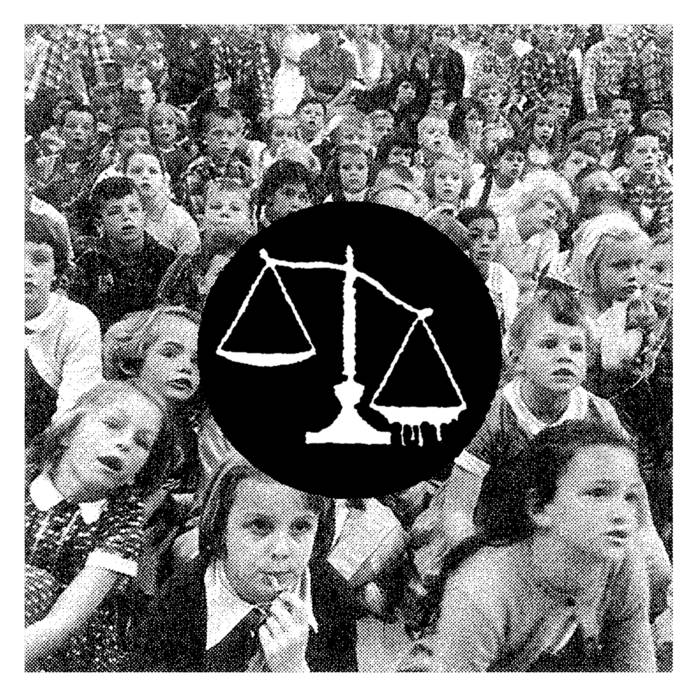
Any time somebody gets past a certain number of Facebook likes, when young kids are wearing their shirts, or when they start selling shirts here or there, suddenly it’s not cool to like them anymore.
So much of liking a band has zero to do with their music and has everything to do with how other people perceive them.
And exclusivity and gatekeeping. As an old-head hardcore dude, if there is some young kid wearing the same shirt as you because they got it on Deathwish, what does that say about your credibility?
If someone does feel that way, I think it’s an undervaluing of their own life experience.
Can you talk about some of the creative risks you took on this album?
It never processes to me as a risk. At this point, I realize I’m risking misinterpretation at any point, which is scary to me. I look at some of the lyrics standing alone, and I think, someone could process this in a different way than what I mean. One of the first bands that I wrote lyrics for, I wrote a song about how I hated the term “boys will be boys.” I talked about it in this form of prescribing a term to fit bad behavior and using it as a term to write off everything you do. But in it, it can sound like it’s an anti-disability song, which is not what it was. But because I’m not using the exact words to say what I’m saying, because I’m not trying to be so blunt, there is the process of interpretation, which is always scary.
It seems like RJC has kind of been painted into a corner, like this whole project is a critique on the carceral state. To me, it’s always felt like an autobiographical project. That happens to be an aspect of your life, but like I said, it feels like journaling; it doesn’t feel like proselytizing.
There is a single song (“Institution”) that is close to anything being about “the system,” but for the most part, it’s all just personal. I’ve used that position in interviews to talk about Securus Technologies, JPay, these things that I see that are fucked up. And then it’s been a runaway narrative of all this “prison reform band.” I’ve never once talked about prison reform. I’ve never once provided a solution. Because I don’t have one. All I’m saying is that this is a subsection of society that most people aren’t privy to or don’t talk about in public. Everything is way more self-involved than me out there trying to solve the ails of the prison system.
Maybe people just aren’t used to it. Particularly in hardcore, there is usually a political platform of some sort, so maybe people are expecting or projecting that.
I think that’s part of it. Specifically, with journalists, there are only so many ways you can talk about a band. “It’s brutal,” or “It’s neck-breaking,” or something, so when you give people the opportunity to talk about something else and this narrative about the project, then people run away with it. It’s something that isn’t just, “Here’s this neck-breaking hardcore.” It’s a story. And people do the same thing over and over again. I think about how many interviews I’ve done where literally the interviewer says, “Hey, can you re-say all that stuff about your brother being in prison?” But I can’t be mad at it. The misinterpretation is something that has helped the band, and I think that, over time, when people look at the art away from all the articles, they’ll know what it is.
I found this quote from 2019 in IndyWeek when you were in the process of writing this: “Why am I the one traveling the world while my brother is stuck in prison?” Do you feel like you still stuck to that as an overarching theme?
There’s always the record you set out to make, and then there’s the record you make. I wanted to explore the record in two parts: the way that I saw something and the way that my brother saw, specifically, how something fucked me up and how something fucked him up. I think the record I ended up making isn’t that record. It ended up being more of this broad picture. Side A is action, cause. Side B is effect. “Taught to Steal,” “Dust Off,” they’re looking at this cross-section of things that are fucked up that both he and I saw. And then side B is more about the way that we operated in the world. This one is completely from my perspective though. He didn’t end up doing any writing on it.
You do have a couple samples from him, right?
Yeah, he does the intro, and we talk in the middle.
Crime and punishment can be synonyms for cause and effect, and this is why I’m so excited about the arc you’ve created with these songs, just as a nerdy English teacher. It’s like a bildungsroman. It focuses on the moral and psychological growth of a person from youth to adulthood. That’s how this song cycle feels to me.
That’s exactly how it is. I would view most of Side A as childhood and most of Side B as adulthood.
Side A, especially with the first song, is like innocence, loss of innocence, and what lessons you take from that. It’s about this exposure to all of these things in your environment, and Side B is about the consequences of that exposure and how you cope with them.
(Read the rest of Cvlt Nation’s interview with Ian Shelton in Part 2.)
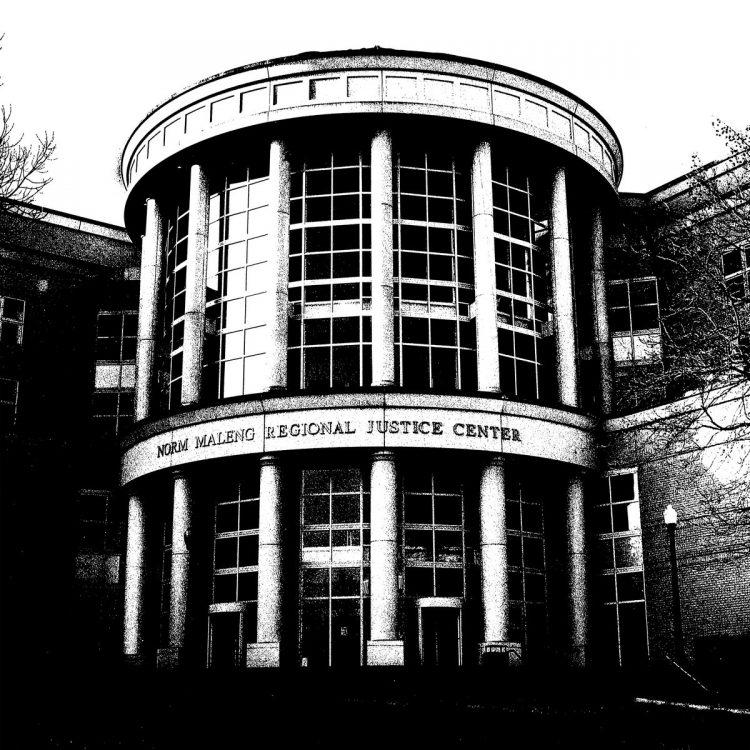
Crime and Punishment was produced, engineered, and mixed by Taylor Young at The Pit Recording Studio.
It was mastered by Brad Boatright at Audiosiege.
The layout and design is by Mark McCoy.
It is released by Closed Casket Activities.

